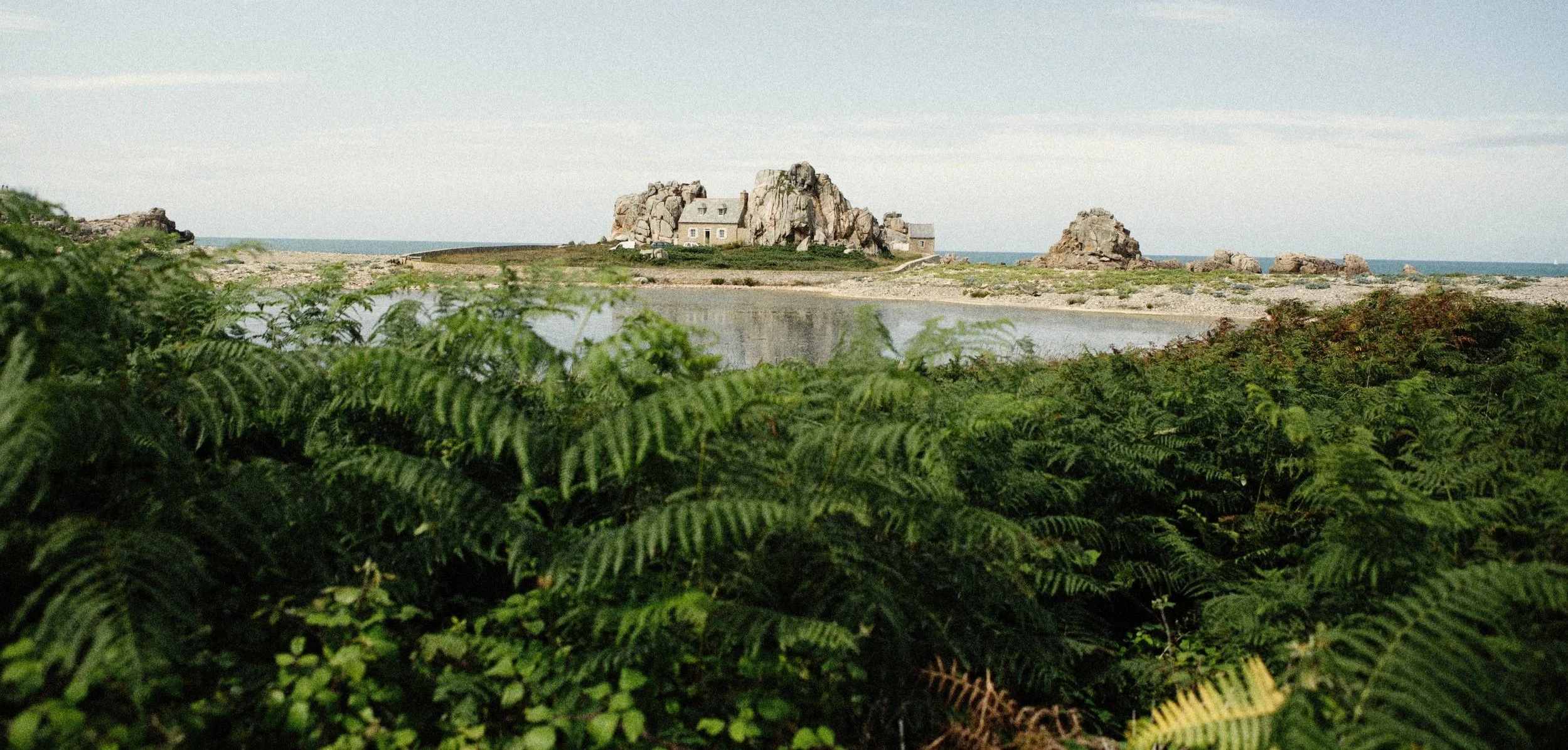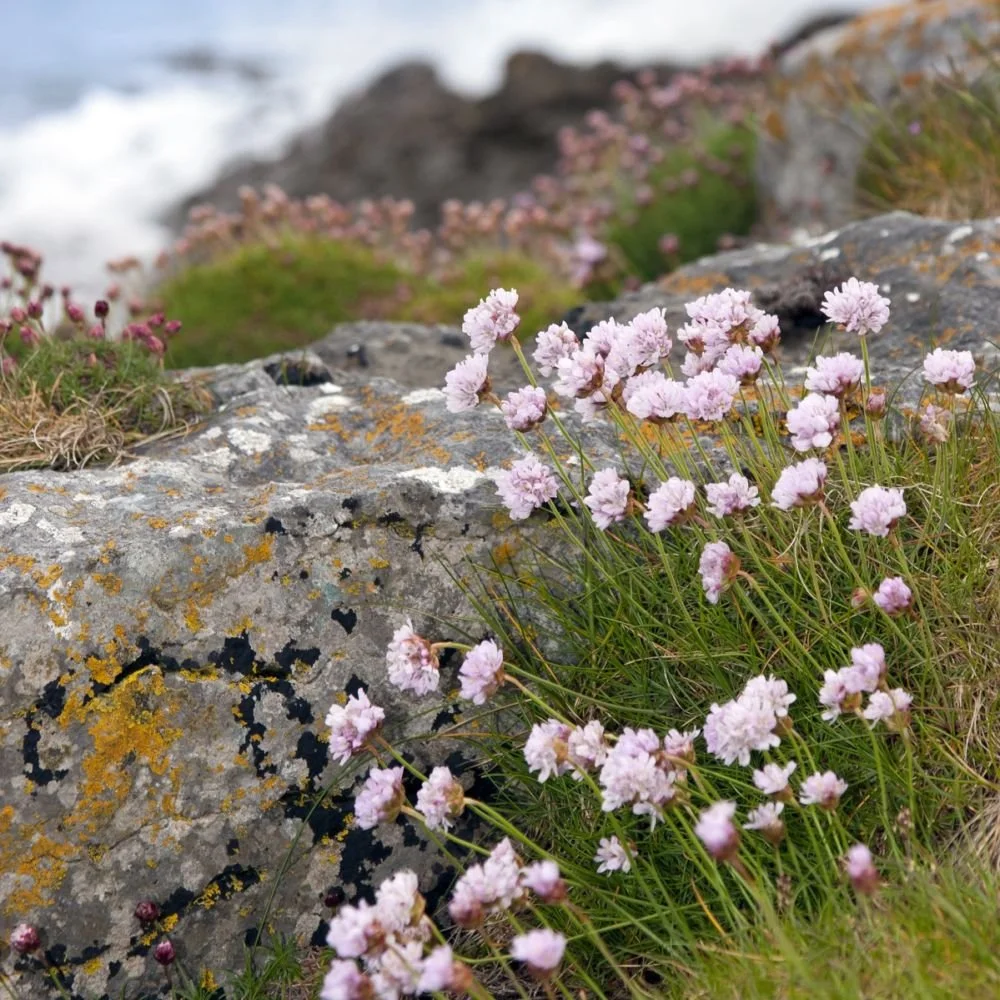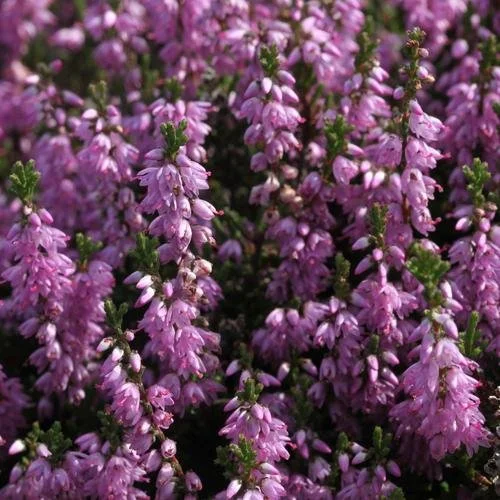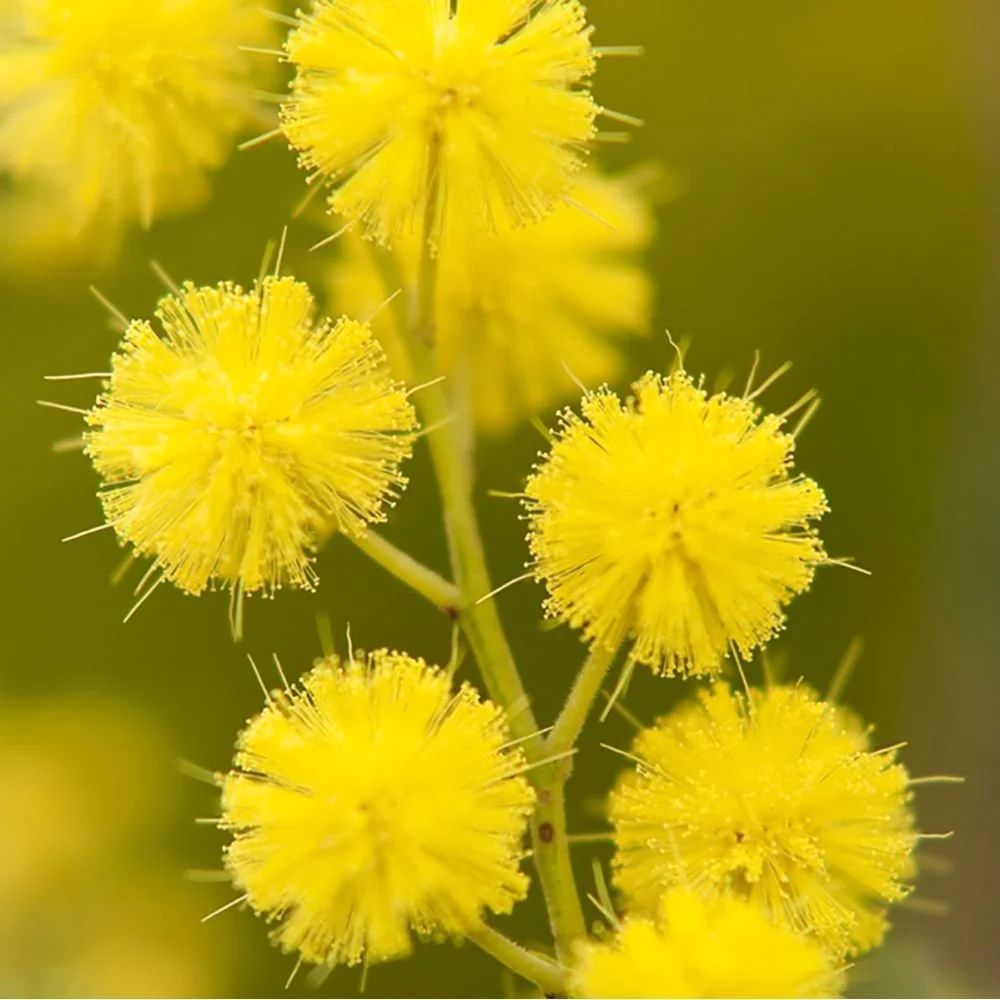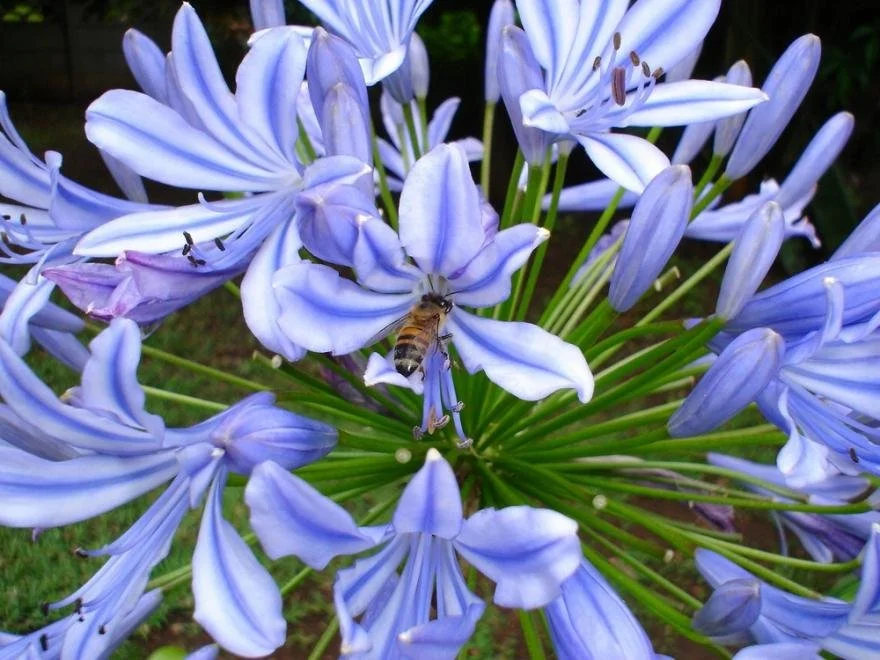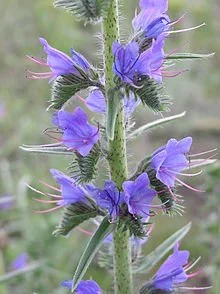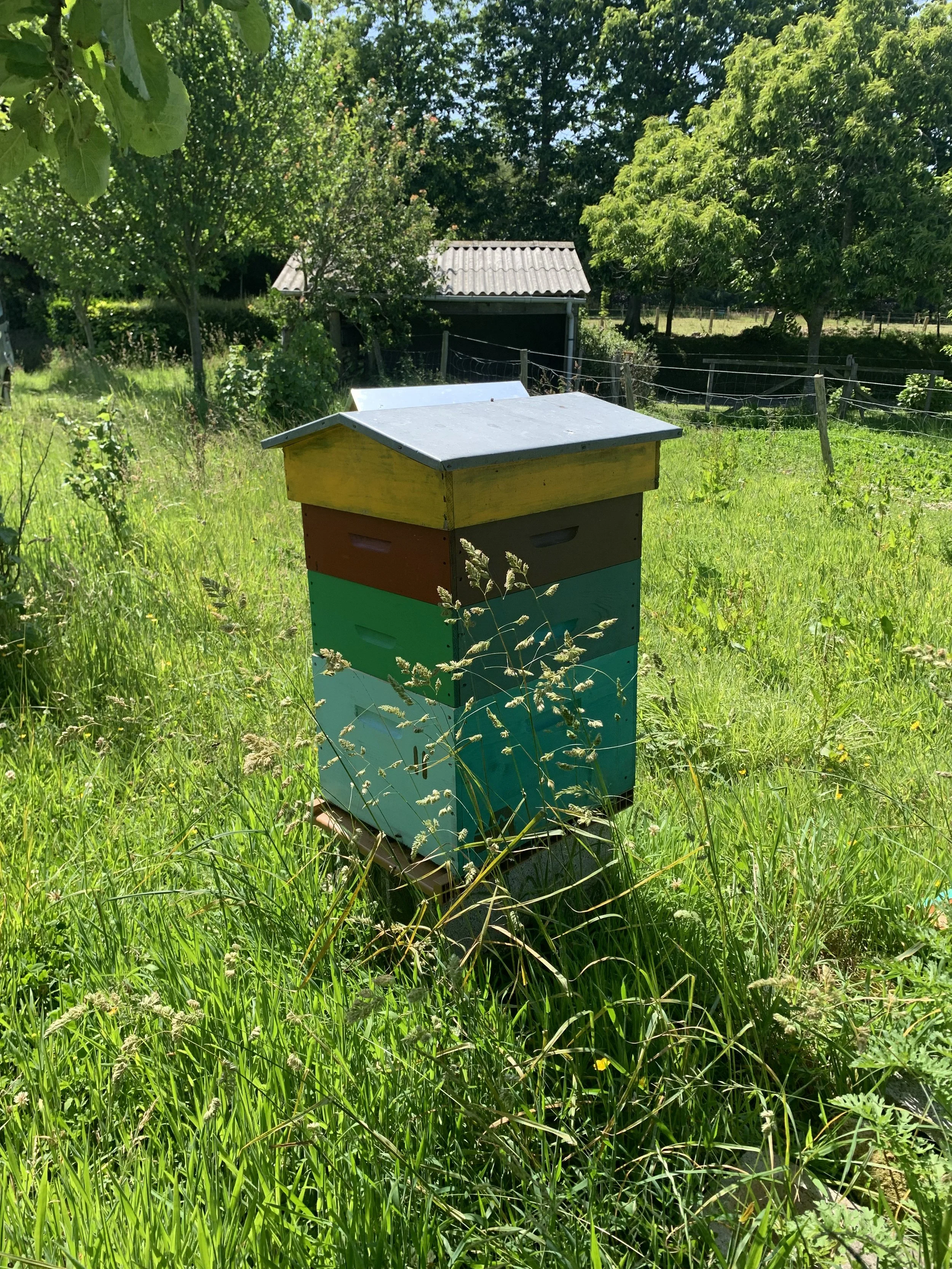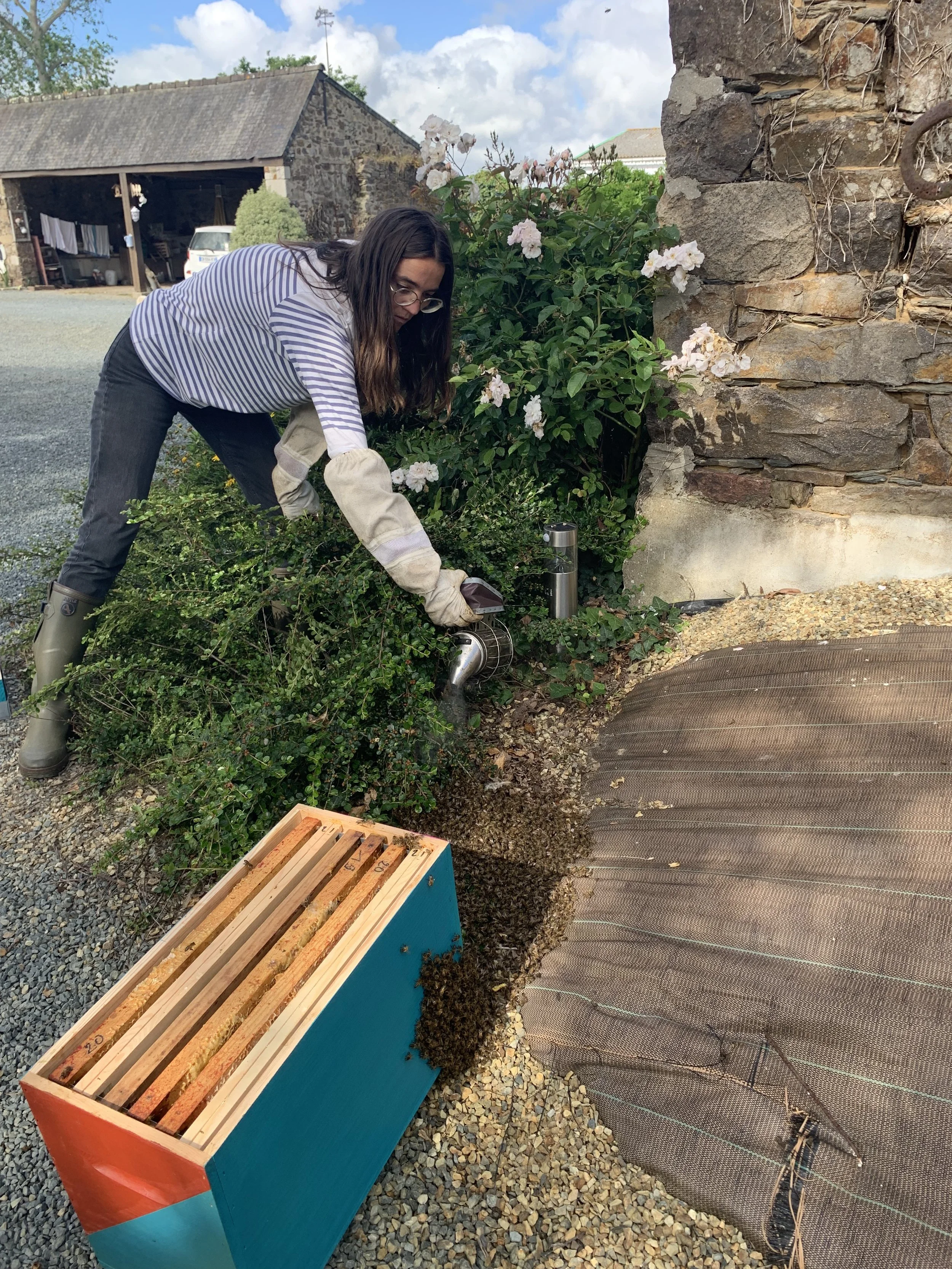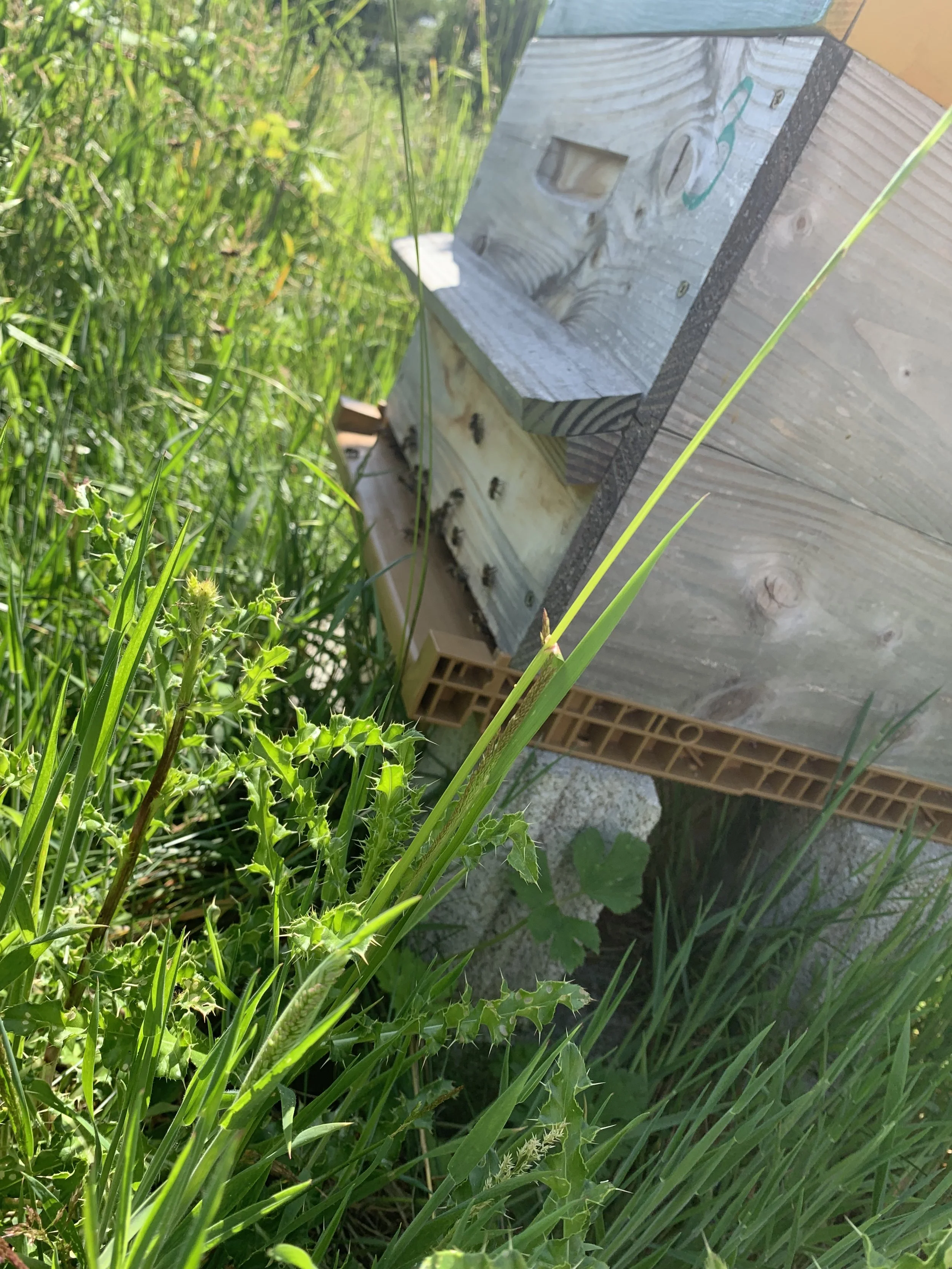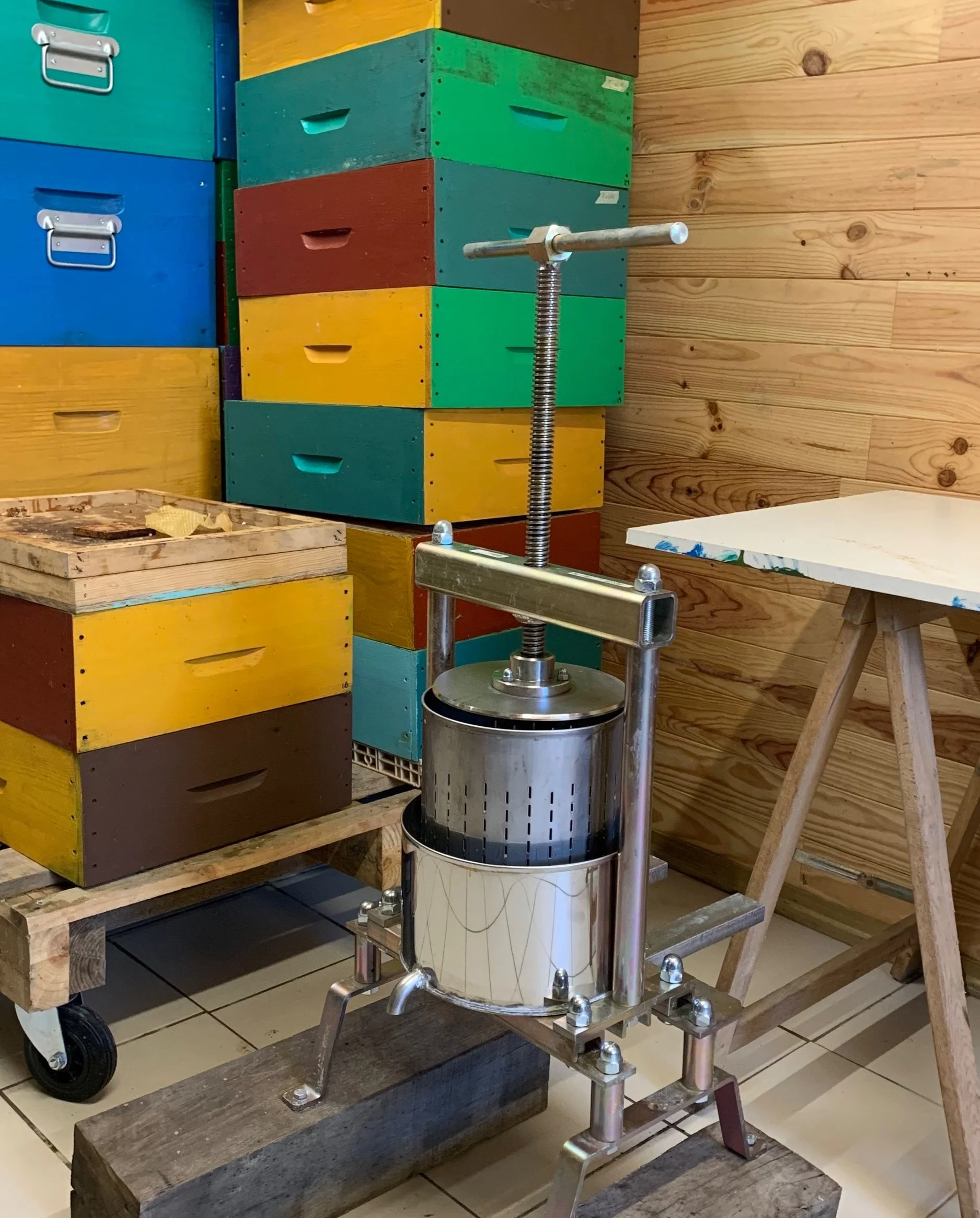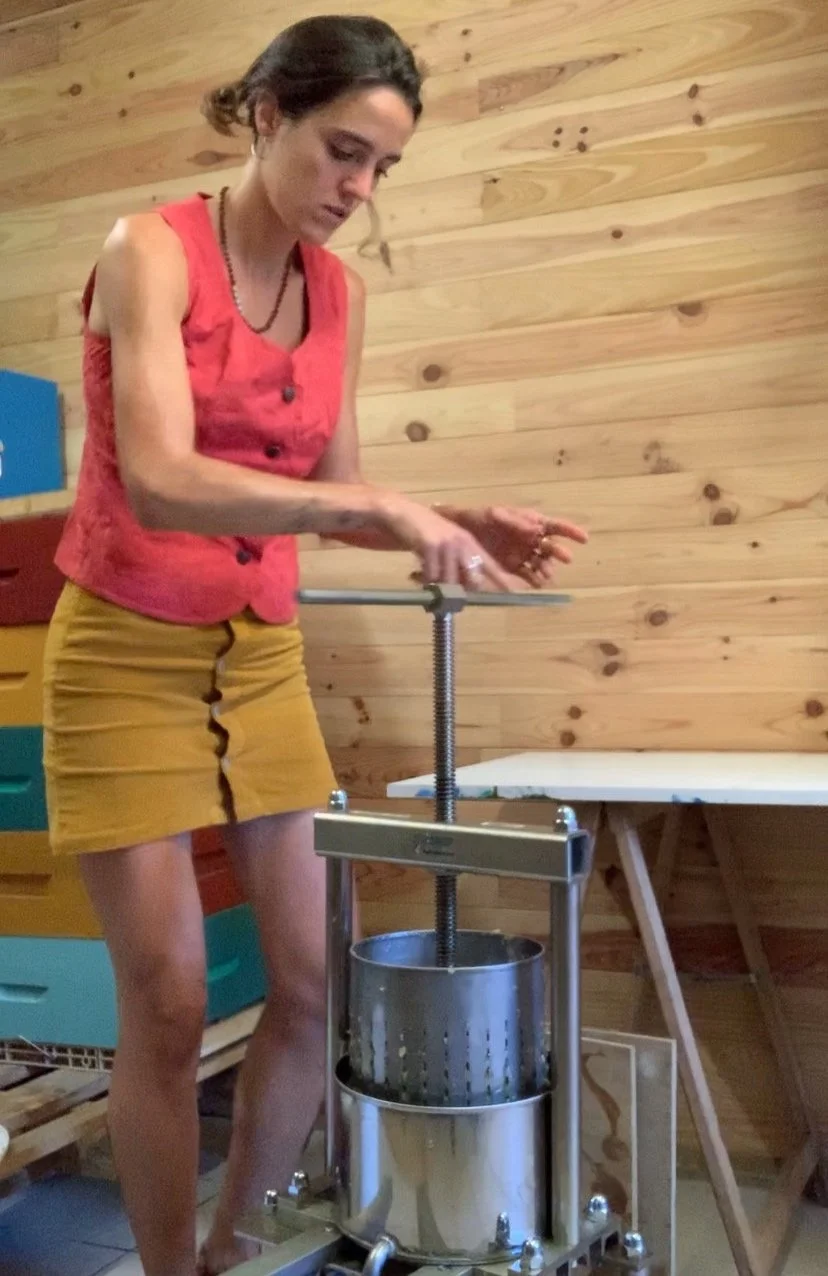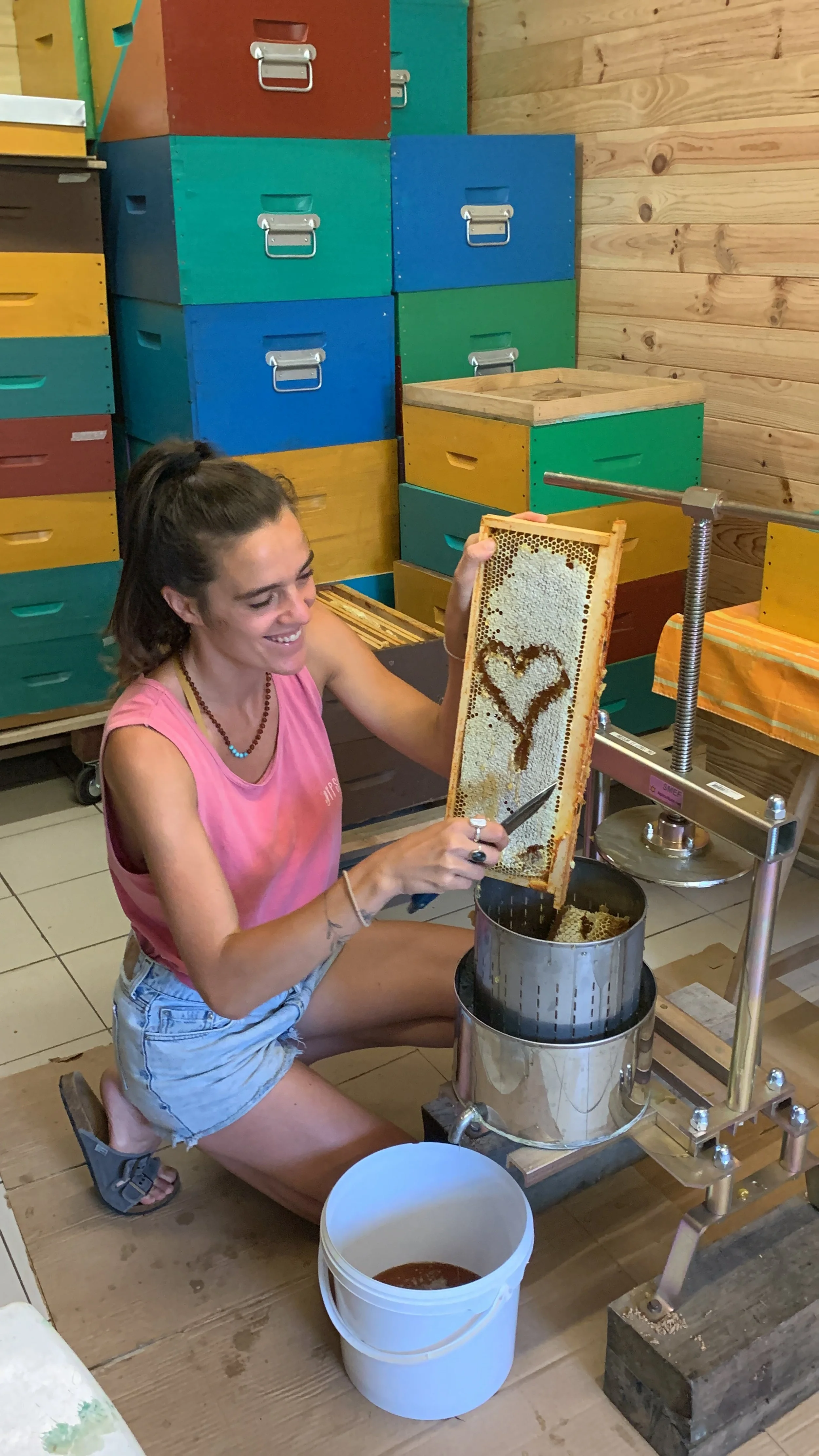BRETON BEES
Latest Honey harvest
Released this late August 2023! Limited stock only.
Ready to order? Send me a message below
The Celtic lands of northern Brittany, France
At the beginning of Covid, Peru shut down its borders for what would be a total of 17 months. I was able to return to France just before the Cusco airport closed. During the trip back to the home country I was able to reflect on the new direction Life had taken me. My intuition told me that my newly renovated honey shop I had poured in all my love and finances, located in the small Inka town of Ollantaytambo, would never be able to see the light again with the recent world chaos of the pandemic. Later on, my intuition was proved right. As I landed in Brittany, I decided to not let the deception and grief pin me down. “If there is Life, if I can breath then.. there is always hope!” ..my mantra has always been.
And so, I decided to explore the beautiful land of the wild ocean coast of Brittany, the land that had seen my grown. While the world was driven with chaos and fear, I dived into the world of bees and dweleved into Beekeeping books written throughtout history, from the Ancient times.. till now. I was given the chance to work and apprentice with an elder that taught me all he knew about the french conventional way of beekeeping. My days were filled, from morning to night, by bees. Working under the hot summer sun, dedicating every ounce of my being into learning and being with them. And slowly I met the beautiful French endemic bee variety: the Black Bee of Brittany or Apis melifera melifera negra. Less then 5% in the territory, the black bee is threatened with extinction, and so I decided to start my own bee apiary on this beautiful mystical land. The more hives I grew, the more swarms were attracted to my sanctuary!
The land that I tend to is pesticide-free and contains a wide variety of native and exotic melifera plants, trees and flowers. On top of that, I planted fields of organic buckwheat, an ancient grain native of my area, that the bees seem to have a sweet tooth for. When the time of harvesting arise, I use a cold press to extract my honey. An ancient method our ancestors used to extract naturally the honey and that preserves its quality in its totality. It is a very time consuming method but the the reward is.. a very rich and “full of life” honey, elixir of Life!
The Black Bee of Brittany (Apis mellifera mellifera)
A Breton bee, endemic and pure specie in danger of extinction.
The Black bee’s cradle of origin is located essentially in Brittany. You can find her particurlarly on the island of Ouessant, where she takes full advantage of a rich and preserved ecosystem free of agricultural pollution (absence of intensive cultivation on the island).
Why is she so special? Because her immunity is strong, she is resistant and powerful, adapted to the cold climate of Breton and her strength lies a remarkable sanitary character: the absence of contamination of the deadly varroa.
She has a large size, a large and voluminous abdomen, a dark pigmentation which allows her a better absorption of the sun's rays and long hairs. These two characteristics make it easier for it to carry pollen in bad weather. Its powerful wings and thoracic muscles allow it to work in the wind as well as to carry heavy loads of pollen or nectar.
In the area where my bee apiary is, we have varied maritime flora that gets watered by the salty sea spray which allows the black bee to produce an exceptional honey often noticed and qualified as the “best” honey in the world.
Hydrangea
Maritime Armenia
Heather
Silver Mimosa
Agapanthus
Gorse
Bugloss
Maritime lavender
bellflower
This beautiful Black bee often qualified as aggressive by french beekeepers compare to her much popular and genetically modified sister: the english Buckfast, is actually an incredible pure specie that has shown me her incredible eagerness of development, dynamism and adaptability. Her only requirement is that she needs to evolve in a preserved nature where can she can express her full capacities as she has a strong dislike of cultured crops (such as oilseed rape flowers, colza etc) and more of a liking in wild flora. A true strong sailor, during her trips of prospecting the geographical areas in search of pollen, she is capable of flying up to 10 kilometres instead of the average of three! Another interesting note is that the Black bee queen can live up to 8 years when her cousin from Europe hardly reaches 4 years old.
Breton Honey
Cold pressed, raw & unfiltered
Summer 2022 harvest
Cold pressed
A long wait and an exclusive selection process.. but a great reward: a honey that has retained all its natural nutrients and rich in living prebiotics & probiotics, trace vitamins and bioavailable minerals.
Benefits of honey.. “fresh out of the hive”
Studies show that raw honey contains a variety of beneficial ingredients.
Raw honey contains specific components that can offer health benefits. Pasteurisation and other processes may remove or reduce some of these elements, which include:
bee pollen, which has antioxidant and anti-inflammatory properties
bee propolis, a glue-like substance that helps keep the hive together
source of vitamins, minerals, amino acids, enzymes, and other beneficial compounds
enzymes
amino acids
antioxidants
Antibacterial & antifungal properties
Heals wounds
Phytonutrient powerhouse (immune boosting)
Help for digestive issues (prebiotics)
soothe sore throat & cough
brain health (polyphenol for memory)
There is a lack of controlled studies comparing pasteurized and raw honey. However, some sources report that pasteurized honey contains few — if any — of the health benefits of raw honey. Because pasteurization exposes the honey to high temperatures, it may destroy or remove honey's natural properties. This means that raw honey may offer more powerful health benefits, in terms of healing wounds and fighting infections, than regular honey.
Many studies have found that raw honey has health benefits. Usually, these benefits come from natural ingredients that regular honey may not contain.
The following sections discuss these ingredients:
Raw Honey contains Pollen
Raw Honey contains Bee Propolis
Pasteurization destroys Antioxidants
Regular honey may contain sugars or additives
Pasteurization of honey removes bee pollen.
A 2015 review study (NCBI) about the benefits of bee pollen reports that it has:
- antioxidant properties
- anti-inflammatory effects
- antibacterial and antifungal action
- pain-relieving properties
These properties make bee pollen a useful addition to honey and can contribute to honey's natural ability to heal wounds and kill bacteria.
Bee pollen also contains amino acids, vitamins A and C, and small amounts of nutrients including calcium, magnesium and sodium.
Bee propolis is the sticky substance that bees use to build their hives and hold the structures together. This glue-like substance not only helps the bees, but some scientists believe that it is healthful for humans as well.
A review study from 2017 ( US National Library of Medicine National Institutes of Health) reports that bee propolis, found in raw honey, may have:
- anti-inflammatory effects
- anti-cancer and antiulcer action
- antifungal effects
Bee propolis also contains B vitamins, vitamins C and E, magnesium, potassium and beneficial enzymes.
Pasteurization removes some of the healthful antioxidants in honey.
There are no official studies on how pasteurization changes antioxidant levels in honey, but studies show that heating processes decrease the antioxidant level in other foods.
Raw honey contains flavonoids and phenolic acids that have antioxidant properties. Antioxidants reduce oxidative stress in the body. Research has linked oxidative stress to many chronic health conditions, including cancers.
Studies suggest that the antioxidants in honey may have anti-cancer effects against different types of tumors.
The types of antioxidants found in raw honey vary depending on the kind of flowers that the bees pollinated.
Some regular honey products contain added sweeteners, such as high fructose corn syrup.
Studies show that some products labeled as "honey" may not be 100 percent real honey, but contain sweeteners, such as brown rice syrup.
Raw honey does not contain any ingredients other than the honey from the beehive.
Bee happy!
My son caught trying to eat leftover honeycomb wax.. !

